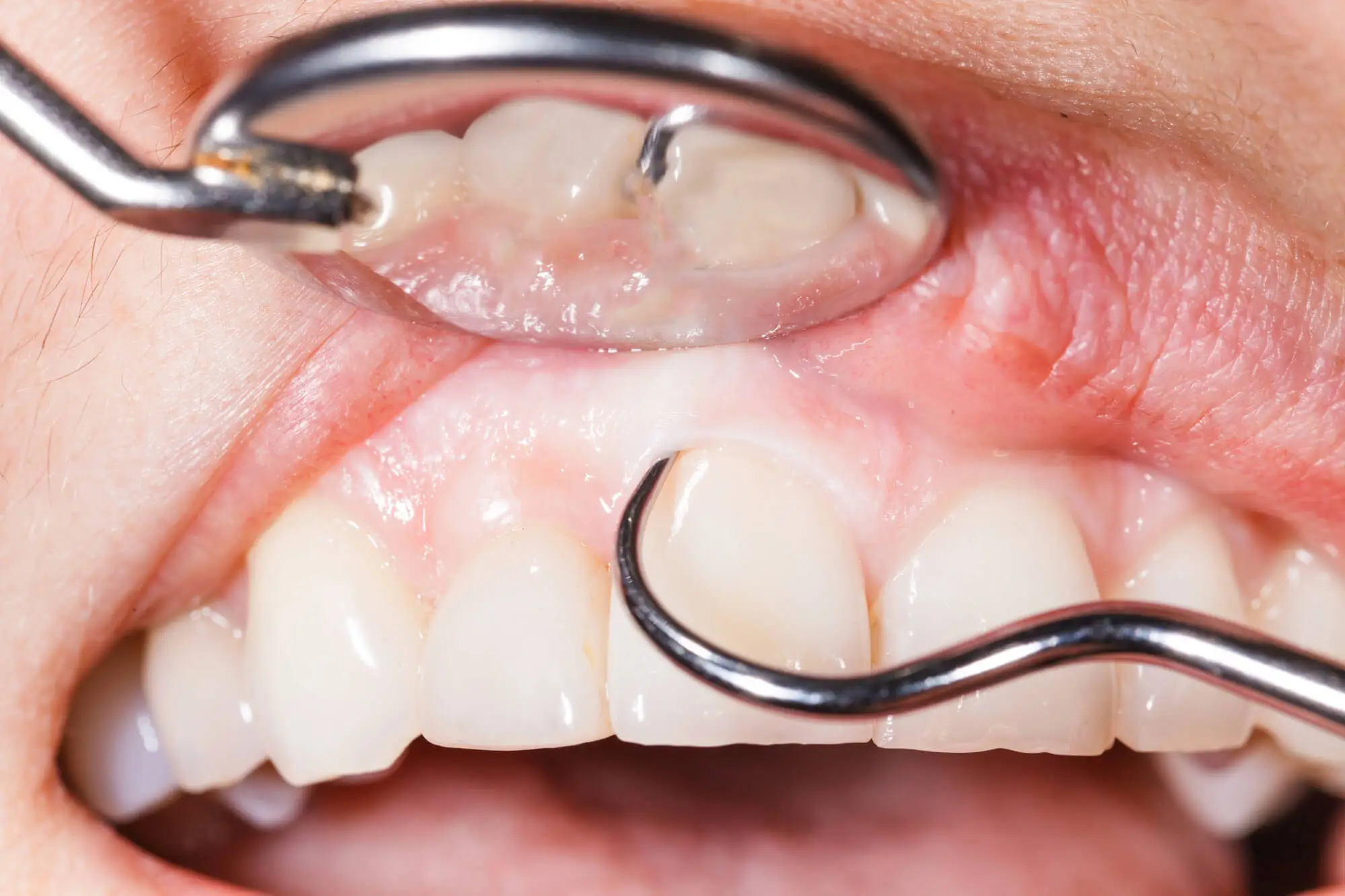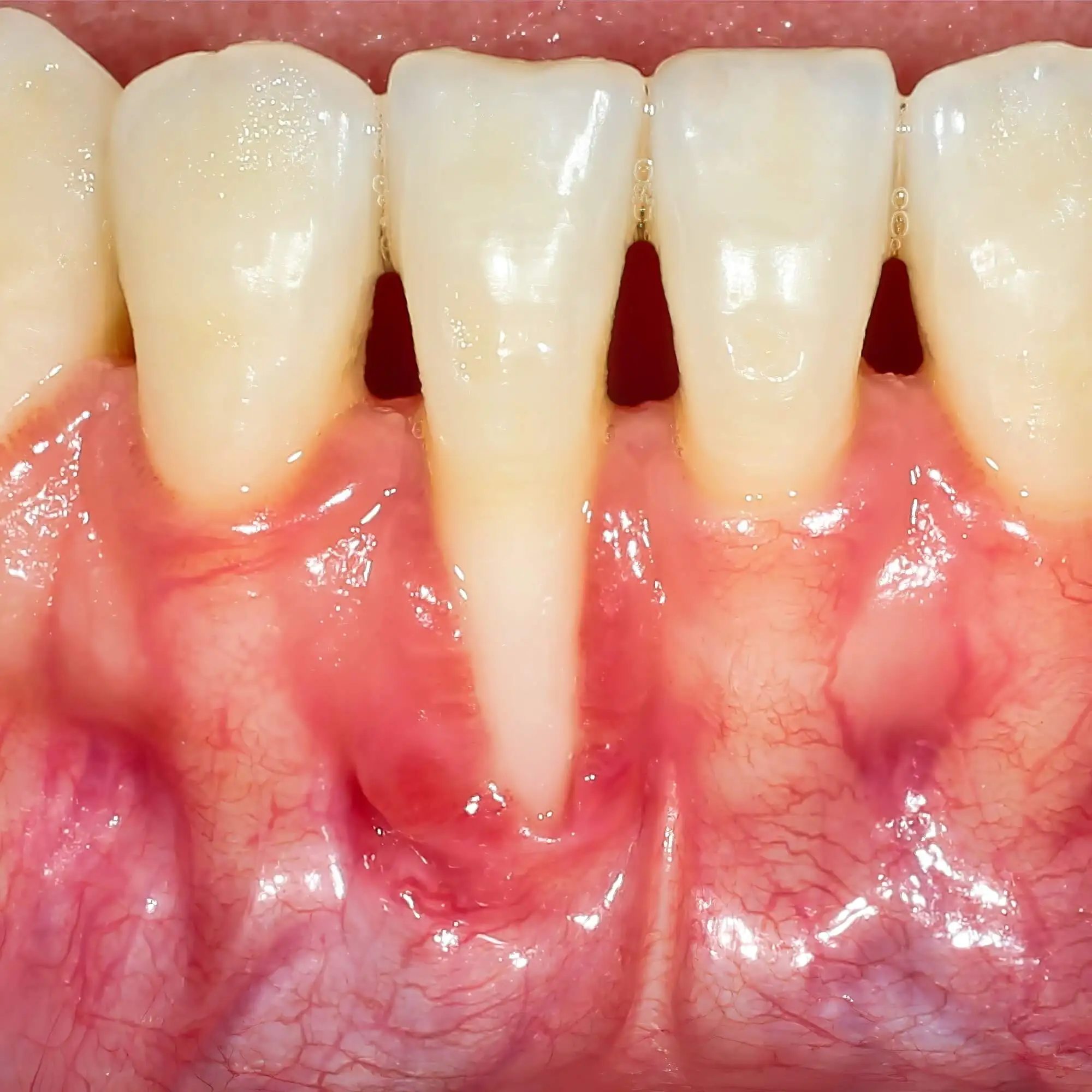
August 14, 2025
Besides visiting the dentist in Montgomery, AL, at least twice a year, good at-home oral hygiene is key to protecting your smile. If not, cavities can be the lesser of your evils: you risk developing gum disease, a dangerous condition that can put your oral—and overall—health at risk.
Luckily, brushing, flossing, and regular dental cleanings are all it takes to keep gingivitis-causing bacteria at bay. Understanding how this condition can impact your smile can be crucial to ensuring you commit to these practices.

What Is Gum Disease?
Gum disease is a gingival infection caused by plaque, a sticky film of bacteria that grows on teeth and feeds off sugars. These bacteria build up when you don’t brush your teeth or floss well enough. With time, plaque turns into tartar, a more solid substance that cannot be removed with brushing only.
Some signs of gum disease are red, sore, or bleeding gums. This condition is extremely common, affecting almost half of adults aged 30 and older with gum disease signs.
While mainly unnoticeable in its early stages, gum disease can progress into periodontitis without treatment, a dangerous condition known to cause tooth loss and linked to overall health issues like cardiovascular disease, diabetes, and an increased risk of stroke.
How Gum Disease Affects Your Oral Health
Untreated gum disease can have severe, long-term consequences for your teeth, gums, bone structure, and even your ability to wear dentures or receive dental implants.
Sore, Bleeding Gums
One of the main signs of gum disease is bleeding gums. This is because the tissue reacts to the acids released by bacteria, becoming inflamed and sore. When flossing or even brushing vigorously, the sensitive tissue can bleed.
Gum bleeding can occasionally occur, but if you notice it every time you brush your teeth, it is time to schedule a dental visit.
Halitosis
Persistent bad breath is a common symptom and consequence of gum disease. The buildup of bacteria in gum pockets releases foul-smelling compounds, contributing to chronic halitosis, which can affect confidence and social interactions.
Aesthetic and Functional Changes
Advanced gum disease can cause:
- Receding gums, exposing tooth roots
- Gaps between teeth
- Loose or shifting teeth
These issues affect not only appearance but also bite alignment and chewing efficiency, making it harder for you to enjoy all of your favorite foods.
Impact on Systemic Health
Gum disease-related chronic inflammation extends beyond your mouth. Studies indicate that systemic conditions like these are linked to periodontal disease:
- Cardiovascular disease
- Diabetes
- Respiratory infections
- Adverse pregnancy outcomes
This systemic connection is due to oral bacteria and inflammatory markers spreading through the bloodstream.

Bone Loss
One of the most significant consequences of gum disease is bone loss.
As the illness worsens, the gums separate from the teeth, creating infected pockets. Toxins from bacteria and the body's immune system start to erode bone and connective tissue, eventually resulting in tooth loss.
Infection and inflammation also start to weaken the jawbone. This is especially troubling for dental implants, which depend on healthy bone for stability and integration.
Impact on Implant Dentistry and Potential Loss
A dental implant consists of a titanium post surgically inserted into the mandible to support a crown, bridge, or denture. For placement to be successful, the volume and density of the bone must be sufficient to support the implant firmly.
However, patients with advanced periodontal disease often experience significant bone loss, making implant placement more difficult or even impossible without first undergoing bone grafting procedures. Additionally, gum disease doesn’t just affect bone before implant placement—it can also lead to implant failure after the procedure.
Bacteria can attack the tissues surrounding the implant in patients with active periodontal disease, resulting in peri-implantitis. This inflammation can weaken the implant's foundation and possibly lead to its failure by causing bone loss around the implant.
Gum Disease and Denture Fit
Gum disease has an impact on the effectiveness and comfort of removable dentures. Periodontitis causes bone and gum tissue loss, which changes the shape of the jaw. This causes dentures to no longer fit properly, resulting in issues such as:
- Dentures slipping or moving when speaking or eating
- Sore spots on the gums
- Reduced chewing efficiency
- Difficulty maintaining proper oral hygiene
Patients frequently require denture adjustments or replacements due to ongoing changes in the mouth caused by gum disease. This cycle of poor fit and frequent modifications can be frustrating and costly.
Preventing and Managing Gum Disease
The good news is that gum disease is largely preventable with good oral hygiene and regular dental visits. Brushing twice daily, flossing daily, and having professional cleanings every six months are key steps in maintaining healthy gums.
- For patients with early signs of gum disease, scaling and root planing (deep cleaning) can help remove plaque and tartar from below the gumline. Periodontal therapy, surgery, or regenerative procedures may be necessary in more severe cases.
- Dental implants can be an option, too, thanks to treatments like gum grafts or sinus lifts. These aim to restore and strengthen lost bone in the jawbone, providing a solid foundation for any implant to come.
- Additionally, if you’ve lost teeth due to gum disease or are struggling with poorly fitting dentures, implant-supported options may be better. With proper management and care, many patients with a history of gum disease can still benefit from the stability and function that implants provide, so reach out to your dentist for a personalized assessment!

Keep Gum Disease at Bay with a Dentist in Montgomery, AL
Gum disease is more than just a gum problem; it is a silent but serious condition that has far-reaching consequences for your oral health, particularly in bone loss, dental implants, and denture function. Left untreated, it can jeopardize your ability to receive or maintain dental implants and make traditional dentures uncomfortable or unreliable.
Luckily, advances in dentistry have enabled people with a history of gum disease to consider reliable options such as implant-supported dentures. At Willis Dental Care, we try to find the best solution for each patient, case by case. Contact us today and let’s work together to combat gum disease and its effects!



